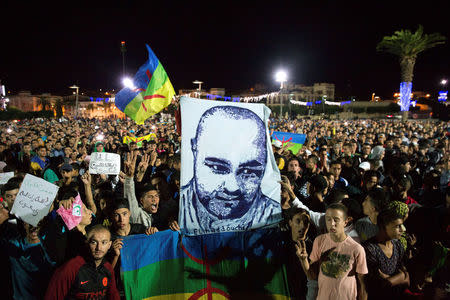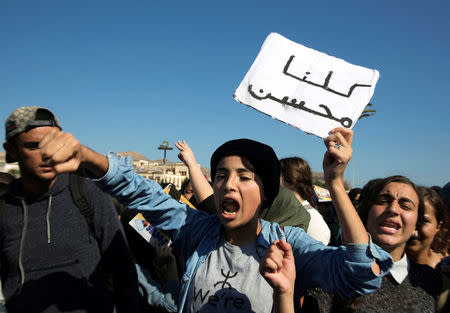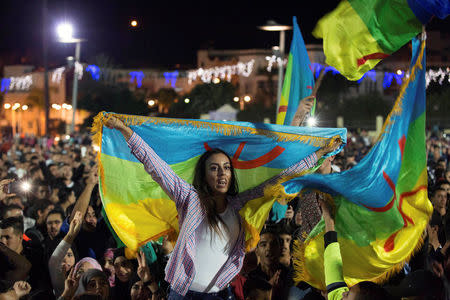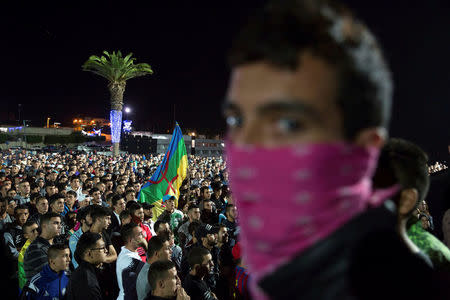Moroccan authorities, facing protests, charge 11 over fishmonger's death
By Aziz El Yaakoubi RABAT (Reuters) - Moroccan authorities have charged 11 people over the death of a fishmonger who was crushed in a garbage truck while trying to stop police from destroying his stock, in a case that has ignited public anger. The death of Mouhcine Fikri in the northern city of Al-Hoceima on Friday has prompted thousands to take to the streets in four days of protests, among the biggest in Morocco since pro-reform demonstrations broke out during the 2011 Arab Spring. Protest chants and a frenzy of angry postings on social media have blamed the Makhzen, a term used to describe the royal establishment. In an effort to calm tensions, King Mohamed, currently on a tour of Africa, ordered the interior minister to visit the victim's family and present royal condolences. The general prosecutor said on Tuesday that 11 people had been referred to an investigating judge, including two interior ministry officials, two local fisheries officials and the veterinary chief in Al-Hoceima, on charges of involuntary manslaughter. Fikri bought 500 kg (1,100 lb) of swordfish, for which fishing is banned from Oct. 1 to Nov. 30 every year, according to a prosecutor's statement published by state news agency MAP. A police officer guarding the port gates called the security services, who impounded Fikri's truck later inside the city. The veterinary doctor decided the fish was unfit for consumption because of a lack of documents. But the local committee had already prepared the legal paperwork to destroy the fish before seizing it, which amounts to forgery of public documents, the statement said. According to local media and authorities, Fikri jumped inside the trash truck that police used to destroy the confiscated fish in a desperate attempt to stop them, and was caught inside the crusher. Activists accused police officers at the scene of ordering garbage men to crush Fikri but the police denied those accusations, and the prosecutor said the investigation had shown there was no order to harm the victim. The statement did not say who pressed the button of the crusher. Protests were held in Al-Hoceima and other towns in the surrounding Rif region, as well as in Casablanca and the capital Rabat, where hundreds gathered chanting "Mohcine was murdered, Makhzen is to blame". Large-scale political protests are rare in Morocco, where the king still holds ultimate sway, although unemployed graduates have long demonstrated for jobs across the country. Demonstrations are heavily policed, reflecting official nervousness over popular unrest. While leaders in Tunisia, Egypt and Libya were swept from power in 2011, King Mohamed defused protests in Morocco that year by devolving some of his power to the elected government. (Editing by Patrick Markey and Mark Trevelyan)





